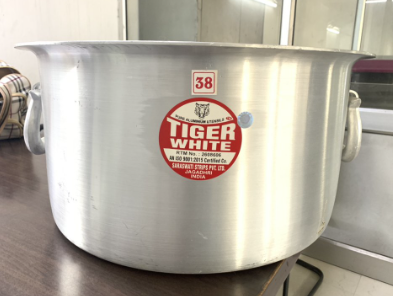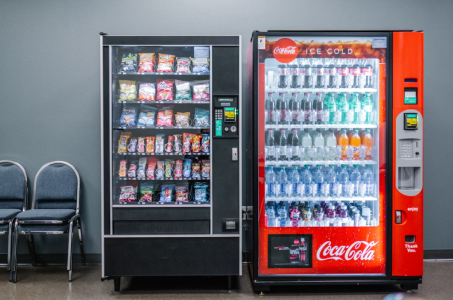Are you unknowingly exposing your family to lead when you cook? FDA issues urgent cookware warning
- Replies 0
For many, the kitchen is more than just a place to cook—it’s where family stories are shared and memories are made.
But what if we told you that a seemingly innocent pot or pan could be putting your health—and your loved ones’ health—at risk every time you cook?
The Food and Drug Administration (FDA) has just sounded the alarm on a hidden danger lurking in some imported cookware, and it’s a warning every home chef needs to hear.
On August 13, the FDA issued an urgent warning after discovering that certain pots and pans—still available on store shelves—could be leaching lead into your food.
The culprit? Cookware made from metal alloys called Hindalium (or Hindolium) and Indalium (or Indolium). These alloys, which are blends of aluminum, aluminum alloys, and brass, are commonly used in some imported cookware, especially from India.
While these materials might sound exotic, they’re not used in US-made cookware for a very good reason: they have a nasty habit of leaching lead, a toxic heavy metal, into anything you cook or store in them.

Let’s be clear: there is no safe level of lead exposure. Even tiny amounts can cause serious health problems, especially for young children, pregnant women, and breastfeeding mothers.
Lead exposure has been linked to a laundry list of health issues, including:
The FDA’s investigation zeroed in on an Indian manufacturer called Saraswati Strips Pvt. Ltd., which sells cookware under the brand name “Tiger White.”
Specifically, the warning mentions deep pots known as Kadais or Karahis—popular for simmering and frying—labeled as Pure Aluminium Utensils Tiger White RTM No: 2608606 An ISO 9001:2015 Certified Co. Saraswati Strips Pvt. Ltd. India. These were found at a Mannan Supermarket in Jamaica, New York.
But here’s the worrying part: the FDA hasn’t been able to contact the distributor to initiate a recall, so these products could still be on shelves—or in kitchens—across the country.
And the investigation is ongoing, so more products could be added to the warning list at any time.
Read also: Lead exposure concerns prompt faucet recall—what you need to know to stay safe
Consumers are advised to check their kitchens for any of the listed products or similar cookware.
If found, the FDA says to throw them away immediately and not attempt to repair, refurbish, or clean them in hopes of removing lead.
Anyone concerned about possible lead exposure should contact their healthcare provider. A blood test can determine if elevated lead levels are present.
Read also: Is your morning coffee safe? Urgent recall issued over possible glass contamination
Retailers and distributors are responsible for ensuring that the cookware they sell is safe.
The FDA recommends using its lead leach testing protocol—or another reliable testing method—to check products for contamination.
The agency also encourages sellers to consult directly with the FDA about updated safety and regulatory standards for cookware and other food-contact products.
Questions regarding this safety alert can be sent to [email protected].
Read next: 8 everyday items still on store shelves—despite serious health warnings

Have you ever discovered a hidden hazard in your kitchen? Do you have questions about safe cookware or tips for choosing the best pots and pans?
But what if we told you that a seemingly innocent pot or pan could be putting your health—and your loved ones’ health—at risk every time you cook?
The Food and Drug Administration (FDA) has just sounded the alarm on a hidden danger lurking in some imported cookware, and it’s a warning every home chef needs to hear.
On August 13, the FDA issued an urgent warning after discovering that certain pots and pans—still available on store shelves—could be leaching lead into your food.
The culprit? Cookware made from metal alloys called Hindalium (or Hindolium) and Indalium (or Indolium). These alloys, which are blends of aluminum, aluminum alloys, and brass, are commonly used in some imported cookware, especially from India.
While these materials might sound exotic, they’re not used in US-made cookware for a very good reason: they have a nasty habit of leaching lead, a toxic heavy metal, into anything you cook or store in them.

The aluminum pots may leach dangerous levels of lead into food. Image source: Tiger White / IndiaMART
Let’s be clear: there is no safe level of lead exposure. Even tiny amounts can cause serious health problems, especially for young children, pregnant women, and breastfeeding mothers.
Lead exposure has been linked to a laundry list of health issues, including:
- Fatigue and headaches
- Stomach pain and vomiting
- Neurological changes (think memory loss, confusion, or mood swings)
- Learning difficulties and behavioral changes in children
- Lower IQ and developmental delays in kids
The FDA’s investigation zeroed in on an Indian manufacturer called Saraswati Strips Pvt. Ltd., which sells cookware under the brand name “Tiger White.”
Specifically, the warning mentions deep pots known as Kadais or Karahis—popular for simmering and frying—labeled as Pure Aluminium Utensils Tiger White RTM No: 2608606 An ISO 9001:2015 Certified Co. Saraswati Strips Pvt. Ltd. India. These were found at a Mannan Supermarket in Jamaica, New York.
But here’s the worrying part: the FDA hasn’t been able to contact the distributor to initiate a recall, so these products could still be on shelves—or in kitchens—across the country.
And the investigation is ongoing, so more products could be added to the warning list at any time.
Read also: Lead exposure concerns prompt faucet recall—what you need to know to stay safe
Consumers are advised to check their kitchens for any of the listed products or similar cookware.
If found, the FDA says to throw them away immediately and not attempt to repair, refurbish, or clean them in hopes of removing lead.
Anyone concerned about possible lead exposure should contact their healthcare provider. A blood test can determine if elevated lead levels are present.
Read also: Is your morning coffee safe? Urgent recall issued over possible glass contamination
Retailers and distributors are responsible for ensuring that the cookware they sell is safe.
The FDA recommends using its lead leach testing protocol—or another reliable testing method—to check products for contamination.
The agency also encourages sellers to consult directly with the FDA about updated safety and regulatory standards for cookware and other food-contact products.
Questions regarding this safety alert can be sent to [email protected].
Read next: 8 everyday items still on store shelves—despite serious health warnings
Key Takeaways
- The FDA has warned that certain imported cookware, particularly Tiger White brand aluminum pots made by Saraswati Strips Pvt Ltd in India, may leach dangerous levels of lead into food.
- Consumers are advised to check if they own any of the affected products, such as kadais/karahis, and dispose of them immediately—they should not try to repair or refurbish the cookware.
- Lead exposure poses serious health risks for everyone, but it’s especially dangerous for young children, people planning pregnancy, and those who are breastfeeding, with potential for lasting developmental harm.
- Retailers and distributors should test their cookware stock using FDA-approved protocols to ensure safety, and anyone with concerns about possible lead exposure is encouraged to contact their healthcare provider.







